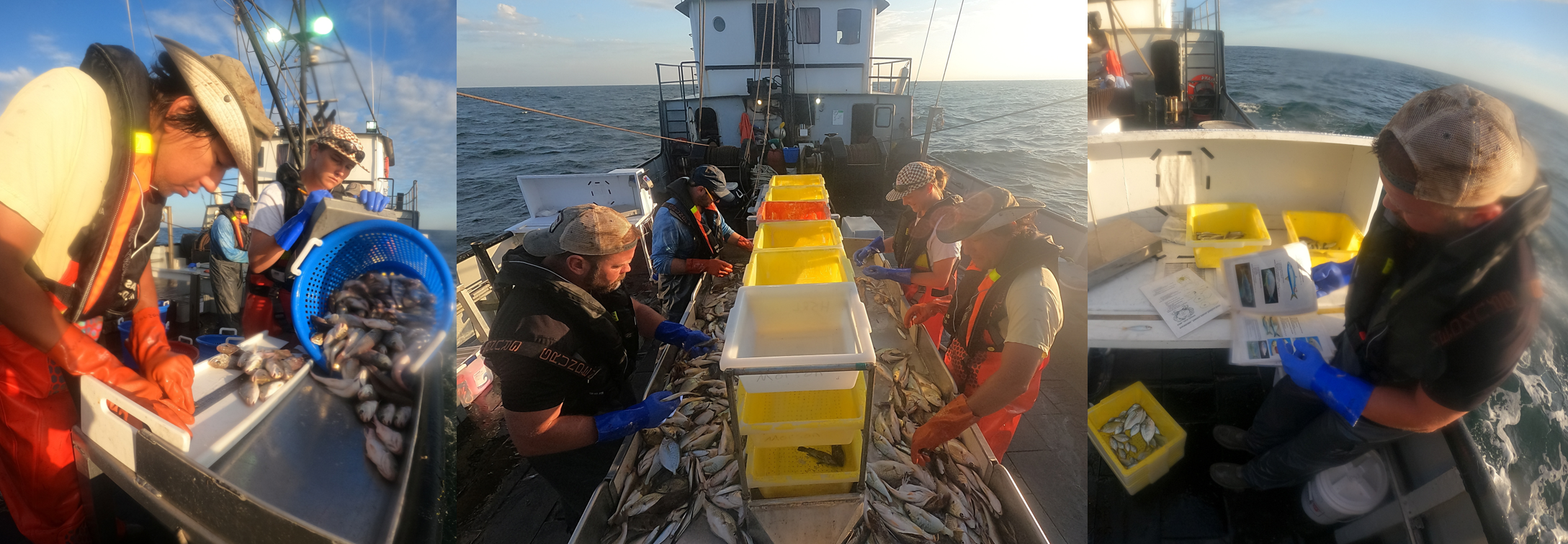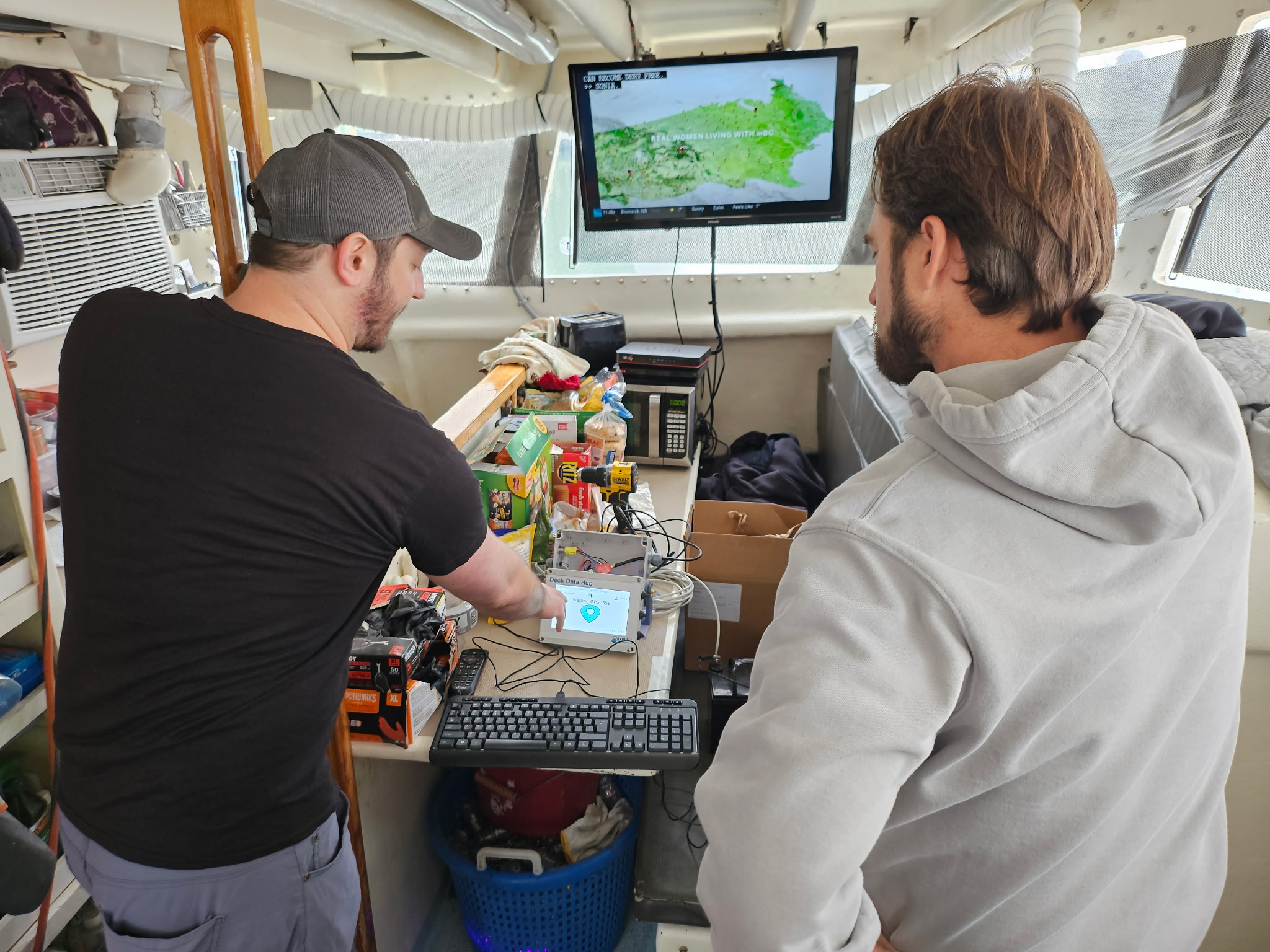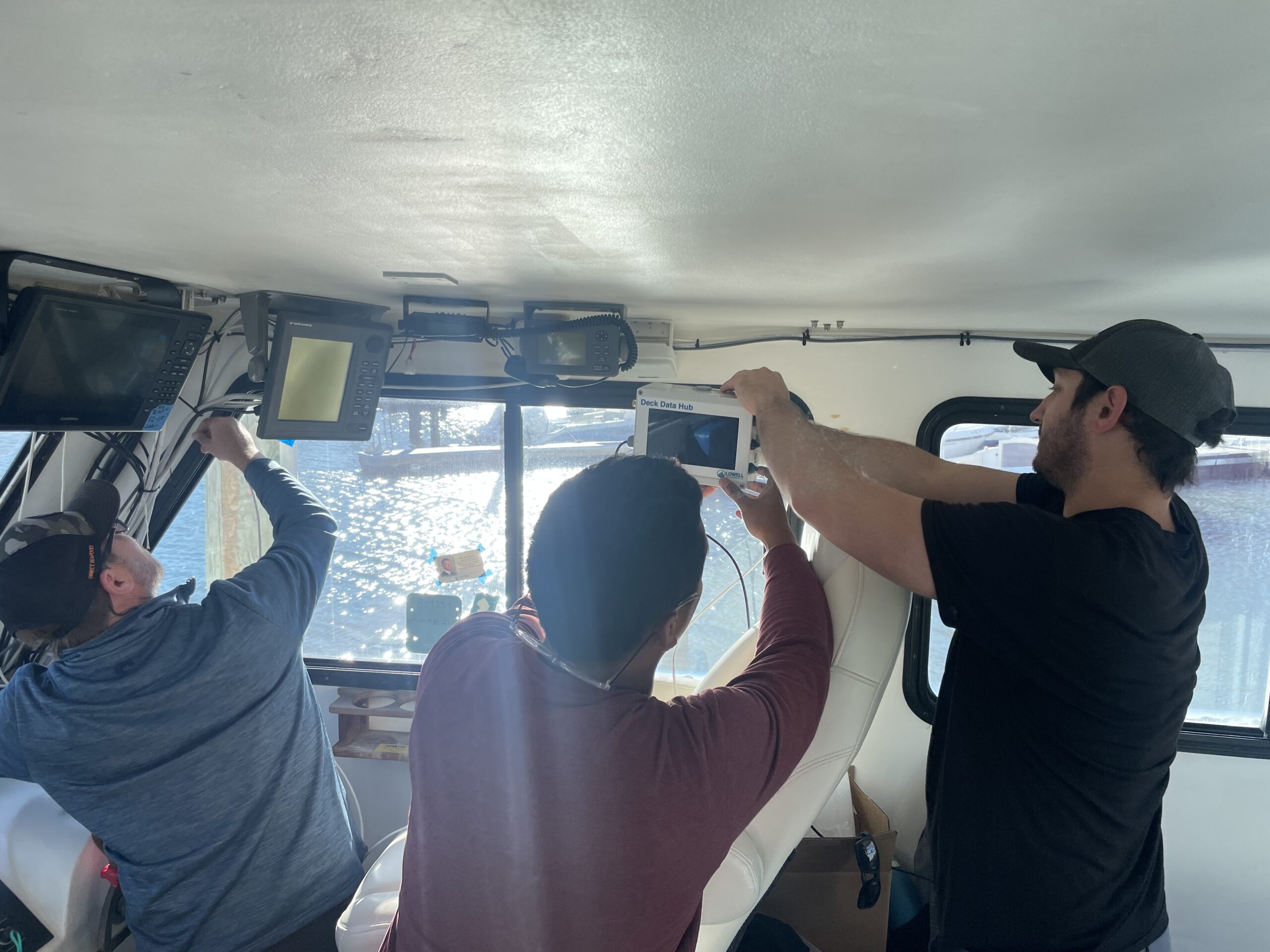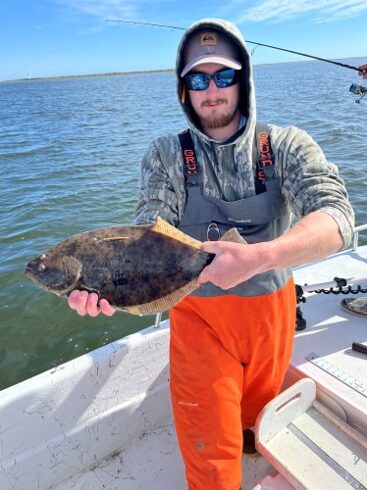Research
Fisheries Monitoring Plans
Research is ongoing to understand and document the potential impacts of offshore wind development on fisheries resources and marine environments. These studies aim to assess how offshore wind development might influence fisheries, including their economic effects, potential displacement, and the possibilities for coexistence. The methodologies employed in these studies are diverse, ranging from advanced modeling techniques to cooperative fisheries sampling, often involving collaboration with multidisciplinary teams. Close engagement with stakeholders and a regional perspective are also crucial components of these efforts.
Rutgers Offshore Wind Living Resource Studies
-

Our team uses bottom trawl surveys to examine how anthropogenic disturbances, such as offshore wind development, affect commercially and recreationally important fishery resources. In collaboration with industry partners, we collected data on fish abundance, species distribution, life history traits, and community structure. To complement the trawl surveys, we incorporated non-extractive methods such as environmental DNA (eDNA) sampling, which detects species presence using genetic material in seawater. Additional techniques—including active acoustics and diet analysis—were employed to assess broader ecological changes. This integrated, multi-method approach enhances our ability to detect ecological impacts. The inclusion of non-extractive tools also deepens our understanding of fish assemblages while advancing less invasive approaches to fisheries research.
-
While the New Jersey coast is predominantly sandy, there are patchy hard-bottom structures that host unique fish assemblages, which can be challenging to survey using traditional dredging or bottom trawling methods. To address this, our Structure Habitat Survey employs three complementary sampling techniques: Chevron traps, rod-and-reel, and Baited Remote Underwater Video systems (BRUVs). BRUVs, a non-extractive method, are a sampling tool that offers a minimally invasive approach and the ability to sample structured habitat. Testing these three sampling methods simultaneously allows us to evaluate gear selectively and efficiency for the survey’s key species: Black sea bass, Scup, Tautog, and Summer flounder. Current work looks at collaborating with other researchers in the region to optimize the use of BRUVs in the Northeast.
Fish Tagging Research and Education Program (FiTREP)
Rutgers University’s Fish Tagging Research and Education Program (FiTREP) is a volunteer-driven pilot initiative aimed at gaining a deeper understanding of the movement and migration patterns of Summer flounder within New Jersey’s coastal estuaries. FiTREP brings together charter captains, recreational anglers, and volunteers from four coastal counties in the state. Using conventional T-bar tags and acoustic telemetry transmitters, the project seeks to explore the interconnectivity of these ecosystems and track the seasonal return patterns of Summer flounder. With a focus on enhancing public awareness and increasing volunteer tagger participation, we aim to continue expanding FiTREP to study how Summer flounder move within and among New Jersey’s estuaries and ocean waters.
Caught one of our tags?
Please click on the link below OR call the following Rutgers tagging hotline: (856) 391-7652.
Environmental Monitoring On Lobster Traps and Large Trawlers (eMOLT)


In the late 1990s, NOAA’s Northeast Fisheries Science Center launched the “Environmental Monitors on Lobster Traps and Large Trawlers” (eMOLT) program, providing low-cost temperature sensors to lobstermen across New England. These sensors gathered millions of bottom temperature records, helping with fish stock assessments and environmental modeling. Recently, the eMOLT team partnered with Lowell Instruments to deploy real-time systems that monitor water temperature and dissolved oxygen, giving fishermen and oceanographers a valuable tool for understanding our coastal ocean. Prior to an ongoing project led by the Cape Cod Fishermen’s Alliance the eMOLT program only engaged several dozen vessels in the Commonwealth of Massachusetts funds, through Massachusetts Technology Collaborative’s Innovation Institute, bring together the largest cooperative network of fishing boats and environmental sensors in the country to study changing ocean temperatures. We are collaborating with the Fishermen’s Alliance, which plans to equip 150 commercial fishing vessels with wireless devices to record environmental data. Our goal is to extend this effort to New Jersey fishing vessels by outfitting them with eMOLT units, making them part of the largest cooperative network of fishing boats and environmental sensors in the United States.


